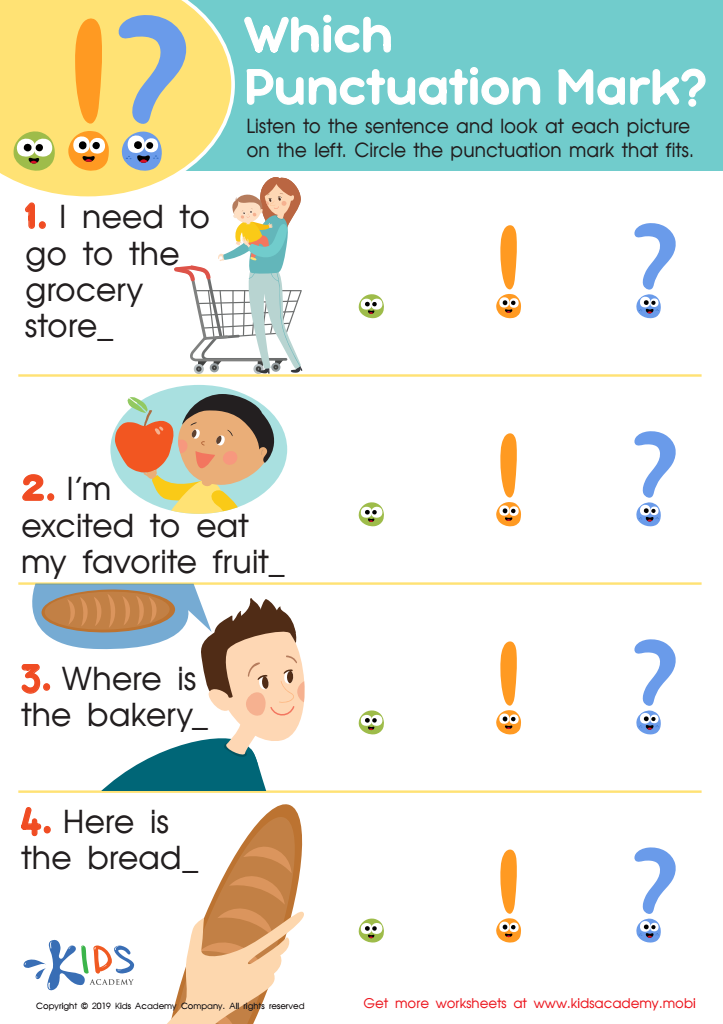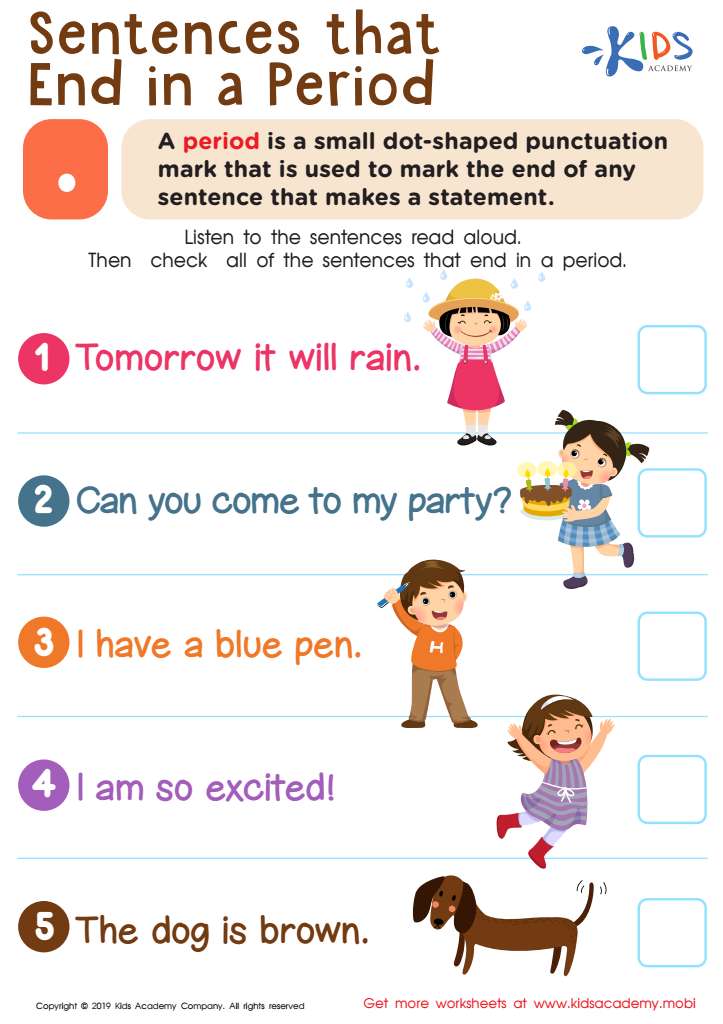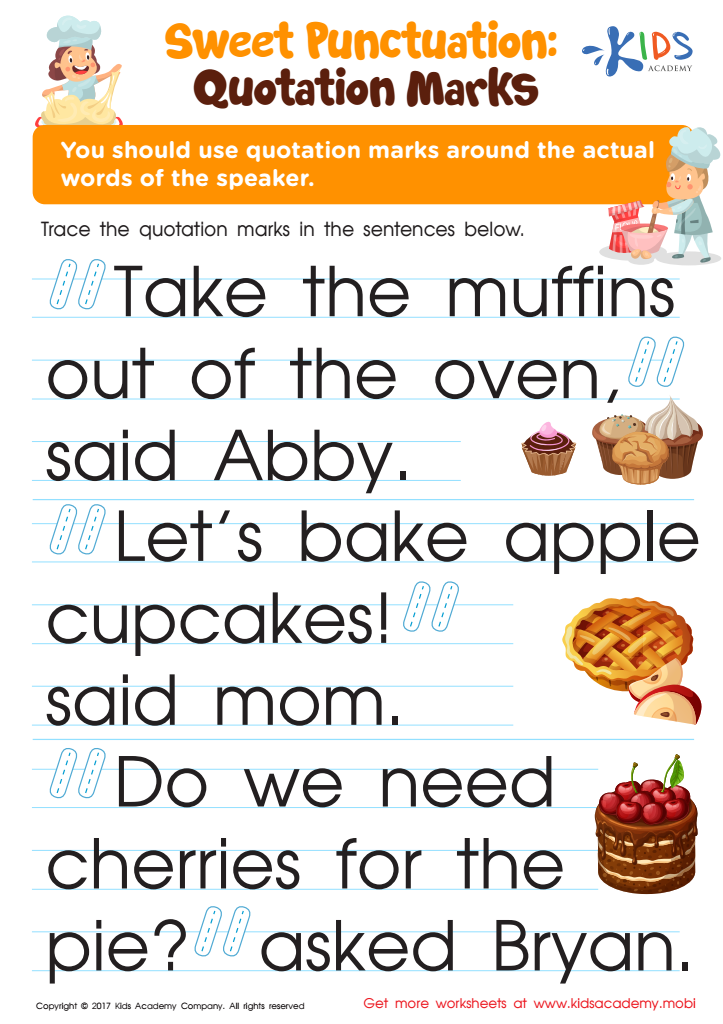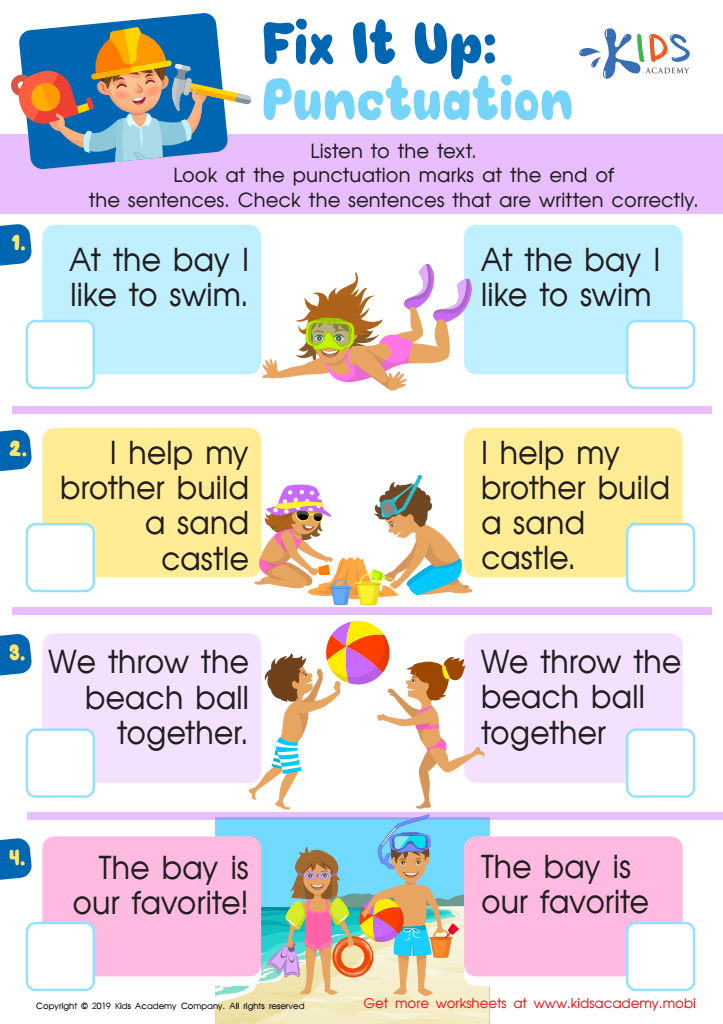Punctuation understanding Punctuation Worksheets for Ages 4-9
4 filtered results
-
From - To
Punctuation Understanding Worksheets for Ages 4-9
Enhance your child's writing skills with our engaging punctuation worksheets designed for children aged 4-9. These worksheets cover essential punctuation marks like periods, commas, question marks, and exclamation points. With kid-friendly exercises and fun activities, young learners will grasp the importance of punctuation in sentence structure. Our worksheets encourage practice and mastery, helping children form strong writing foundations for future success. Explore our colorful and creative resources at Kids Academy to transform punctuation learning into an enjoyable experience for your budding writers!


Which Punctuation Mark Worksheet


Sentences That End in a Period Worksheet


Commas and Quotation Marks Worksheet


Fix Punctuation Worksheet
Understanding punctuation is crucial for children aged 4-9 as it lays the foundation for effective communication and literacy skills. Punctuation marks, such as periods, commas, and question marks, cue readers on how to read aloud or interpret the written word. They indicate pausing, stopping, or expressing an inquiry or exclamation, which improves reading fluency and comprehension.
For young learners, grasping punctuation helps them convey their thoughts clearly and accurately when they start writing. It teaches them the structure of language and how meaning can change with different punctuation marks. For instance, the difference between "Let's eat, Grandma" and "Let's eat Grandma!" is a humorous, yet powerful illustration of how punctuation can affect meaning.
Parents and teachers play vital roles in modeling correct punctuation use through reading aloud and providing written examples. Encouraging young children to notice and use punctuation helps avoid common pitfalls later in academics and communication. Mastery of punctuation will enable children to express themselves correctly, enhancing both their spoken and written skills.
Moreover, understanding punctuation at an early age boosts children's confidence in their reading and writing abilities, fostering a positive attitude toward learning. Recognizing its importance ensures a strong language foundation, promoting academic success and effective communication throughout their lives.
 Assign to My Students
Assign to My Students





















